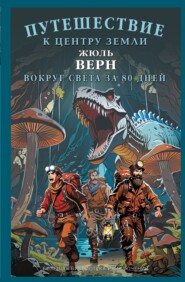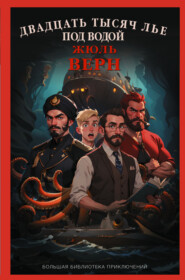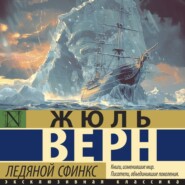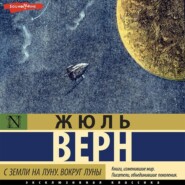По всем вопросам обращайтесь на: info@litportal.ru
(©) 2003-2024.
✖
Celebrated Travels and Travellers, Part 3. The Great Explorers of the Nineteenth Century
Настройки чтения
Размер шрифта
Высота строк
Поля
"However," continues Klaproth, "after meeting again the Sarmatic Medes of the ancients in this people, it is still more surprising also to recognize the Alains, who occupied the districts north of the Caucasus."
He adds: "It follows from all we have said, that the Ossetes, who call themselves Irons, are the Medes, who assumed the name of Irans, and whom Herodotus styles the Arioi. They are, moreover, the Sarmatic Medes of the ancients, and belong to the Median colony founded in the Caucasus by the Scythians. They are the As or Alains of the middle ages. And lastly, they are the Iasses of Russian chronicles, from whom some of the Caucasus range took their name of the Iassic Mountains." This is not the place to discuss identifications belonging to the realm of criticism. We will content ourselves with adding to these remarks of Klaproth on the Ossete language, that its pronunciation resembles that of the Low-German and Slavonic dialects.
The Georgians differ essentially from the neighbouring nations, alike in their language and in their physical and moral qualities. They are divided into four principal tribes – the Karthalinians, Mingrelians, and Shvans (or Swanians), inhabiting the southern range of the Caucasus, and the Lazes, a wild robber tribe.
As we have seen, the facts collected by Klaproth are very curious, and throw an unexpected light on the migration of ancient races. The penetration and sagacity of the traveller were marvellous, and his memory was extraordinary. The scholar of Berlin rendered signal services to the science of philology. It is to be regretted that his qualities as a man, his principles, and his temper, were not on a level with his knowledge and acumen as a professor.
We must now leave the Old World for the New, and give an account of the explorations of the young republic of the United States. So soon as the Federal Government was free from the anxieties of war, and its position was alike established and recognized, public attention was directed to the "fur country," which had in turn attracted the English, the Spanish, and the French. Nootka Sound and the neighbouring coasts, discovered by the great Cook and the talented Quadra, Vancouver, and Marchand, were American. Moreover, the Monroe doctrine, destined later to excite so much discussion, already existed in embryo in the minds of the statesmen of the day.
In accordance with an Act of Congress, Captain Merryweather Lewis and Lieutenant William Clarke, were commissioned to trace the Missouri, from its junction with the Mississippi to its source, and to cross the Rocky Mountains by the easiest and shortest route, thus opening up communication between the Gulf of Mexico and the Pacific Ocean. The officers were also to trade with any Indian tribes they might meet.
The expedition was composed of regular troops and volunteers, numbering altogether, including the leaders, forty-three men; one boat and two canoes completed the equipment.
On the 14th May, 1804, the Americans left Wood River, which flows into the Mississippi, and embarked on the Missouri. From what Cass had said in his journal, the explorers expected to have to contend with natural dangers of a very formidable description, and also to fight their way amongst natives of gigantic stature, whose hostility to the white man was invincible.
During the first days of this long canoe voyage, only to be compared to those of Orellana and Condamine on the Amazon, the Americans were fortunate enough to meet with some Sioux Indians, an old Frenchman, a Canadian coureur des bois, or trapper, who spoke the languages of most of the Missouri tribes, and consented to accompany the expedition as interpreter.
They passed the mouths of the Osage, Kansas, Platte or Nebraska, and White River, all tributaries of the Missouri, successively, and met various parties of Osage and Sioux, or Maha Indians, who all appeared to be in a state of utter degradation. One tribe of Sioux had suffered so much from smallpox, that the male survivors, in a fit of rage and misery, had killed the women and children spared by the terrible malady, and fled from the infected neighbourhood.
A little farther north dwelt the Ricaris, or Recs, at first supposed to be the cleanest, most polite, and most industrious of the tribes the expedition met with; but a few thefts soon modified that favourable judgment. It is curious that these people do not depend entirely on hunting, but cultivate corn, peas, and tobacco.
This is not, however, the case with the Mandans, who are a more robust race. A custom obtains among them, also characteristic of Polynesia – they do not bury their dead, but expose them on a scaffold.
Clarke's narrative gives us a few details relating to this strange tribe. The Mandans look upon the Supreme Being only as an embodiment of the power of healing. As a result they worship two gods, whom they call the Great Medicine or the Physician, and the Great Spirit. It would seem that life is so precious to them that they are impelled to worship all that can prolong it!
Their origin is strange. They originally lived in a large subterranean village hollowed out under the ground on the borders of a lake. A vine, however, struck its roots so deeply in the earth as to reach their habitations, and some of them ascended to the surface by the aid of this impromptu ladder. The descriptions given by them on their return of the vast hunting-grounds, rich in game and fruit, which they had seen, led the rest of the tribe to resolve to reach so favoured a land. Half of them had gained the surface, when the vine, bending beneath the weight of a fat woman, gave way, and rendered the ascent of the rest impossible. After death the Mandans expect to return to their subterranean home, but only those who die with a clear conscience can reach it; the guilty will be flung into a lake.
The explorers took up their quarters for the winter amongst the Mandans, on the 1st of November. They built huts, as comfortable as possible with the materials at their command; and in spite of the extreme cold, gave themselves up to the pleasures of hunting, which soon became a positive necessity of their existence.
When the ice should break up on the Missouri, the explorers hoped to continue their voyage; but on their sending the boat down to St. Louis, laden with the skins and furs already obtained, only thirty men were found willing to carry the expedition through to the end.
The travellers soon passed the mouth of the Yellowstone River, with a current nearly as strong as that of the Missouri, flowing through districts abounding in game.
Cruel was their perplexity when they arrived at a fork where the Missouri divided into two rivers of nearly equal volume, for which was the main stream? Captain Lewis with a party of scouts ascended the southern branch, and soon came in sight of the Rocky Mountains, completely covered with snow. Guided to the spot by a terrific uproar, he beheld the Missouri fling itself in one broad sheet of water over a rocky precipice, beyond which it formed a broken series of rapids, extending for several miles.
The detachment now followed this branch, which led them into the heart of the mountains, and for three or four miles dashed along between two perpendicular walls of rock, finally dividing itself into three parts, to which were given the names of Jefferson, Madison, and Galatin, after celebrated American statesmen.
The last heights were soon crossed, and then the expedition descended the slopes overlooking the Pacific. The Americans had brought with them a Soshone woman, who had been protected as a girl by the Indians of the east, and not only did she serve the explorers faithfully as an interpreter, but also, through her recognition of a brother in the chief of a tribe disposed to be hostile, she from that moment secured cordial treatment for the white men. Unfortunately the country was poor, the people living entirely on wild berries, bark, and the little game they were able to obtain.
The Americans, little accustomed to this frugal fare, had to eke it out by eating their horses, which had grown very thin, and buying all the dogs the natives would consent to sell. Hence they obtained the nickname of Dog-eaters.
As the temperature became milder, so did the character of the natives, whilst food grew more abundant; and as they came down the Oregon, also known as the Columbia, the salmon formed a seasonable addition to the bill of fare. When the Columbia, which is dangerous for navigation, approaches the sea, it forms a vast estuary, where the waves from the offing meet the current of the river. The Americans more than once incurred considerable risk of being swallowed up, with their frail canoe, before they reached the shores of the ocean.
Glad to have accomplished the aim of their expedition, the explorers wintered at the mouth of the river, and when the fine weather set in they made their way back to St. Louis, arriving there in May, 1806, after an absence of two years, four months, and ten days. They had in that time, according to their own estimate, traversed less than 1378 leagues.
The impulse was now given, and reconnoitring expeditions in the interior of the new continent rapidly succeeded each other, assuming, a little later, a scientific character which gives them a position of their own in the history of discovery.
A few years later, one of the greatest colonizers of whom England can boast, Sir Stamford Raffles, organizer of the expedition which took possession of the Dutch colonies, was appointed Military Governor of Java. During an administration extending over five years, Raffles brought about numerous reforms, and abolished slavery. Absorbing as was this work, however, it did not prevent him from publishing two huge quarto volumes, which are as interesting as they are curious. They contain, in addition to the history of Java, a vast number of details about the natives of the interior, until then little known, together with much circumstantial information respecting the geology and natural history of the country. It is no wonder, therefore, that in honour of the man who did so much to make Java known, the name of Rafflesia should have been given to an immense flower native to it, and of which some specimens measure over three feet in diameter, and weigh some ten pounds.
Raffles was also the first to penetrate to the interior of Sumatra, of which the coast only was previously known. He visited the districts occupied by the Passoumahs, sturdy tillers of the soil, the northern provinces, with Memang-Kabou, the celebrated Malayan capital, and crossed the southern half of the island, from Bencoulen to Palimbang.
Sir Stamford Raffles' fame, however rests principally upon his having drawn the attention of the Indian Government to the exceptionally favourable position of Singapore, which was converted by him into an open port, and grew rapidly into a prosperous settlement.
CHAPTER II
THE EXPLORATION AND COLONIZATION OF AFRICA
I
Peddie and Campbell in the Soudan – Ritchie and Lyon in Fezzan – Denham, Oudney, and Clapperton in Fezzan, and in the Tibboo country – Lake Tchad and its tributaries – Kouka and the chief villages of Bornou – Mandara – A razzia, or raid, in the Fellatah country – Defeat of the Arabs and death of Boo-Khaloum – Loggan – Death of Toole – En route for Kano – Death of Oudney – Kano – Sackatoo – Sultan Bello – Return to Europe.
The power of Napoleon, and with it the supremacy of France, was scarcely overthrown – the Titanic contests, to gratify the ambition of one man at the expense of the intellectual progress of humanity, were scarcely at an end, before an honourable rivalry awoke once more, and new scientific and commercial expeditions were set on foot. A new era had commenced.
Foremost in the ranks of the governments which organized and encouraged exploring expeditions we find as usual that of England. It was in Central Africa, the vast riches of which had been hinted at in the accounts given of their travels by Hornemann and Burckhardt, that the attention of the English was now concentrated.
As early as 1816 Major Peddie, starting from Senegal, reached Kakondy, on the River Nuñez, succumbing, however, to the fatigue of the journey and unhealthiness of the climate soon after his arrival in that town. Major Campbell succeeded him in the command of the expedition, and crossed the lofty mountains of Foota-Djalion, losing in a few days several men and part of the baggage animals.
Arrived at the headquarters of the Almamy, as most of the kings of this part of Africa are called, the expedition was detained for a long time, and only obtained permission to depart on payment of a large sum.
Most disastrous was the return journey, for the explorers had not only to recross the streams they had before forded with such difficulty, but they were subjected to so many insults, annoyances, and exactions, that to put an end to them Campbell was obliged to burn his merchandize, break his guns, and sink his powder.
Against so much fatigue and mortification, added to the complete failure of his expedition, Major Campbell failed to bear up, and he died, with several of his officers, in the very place where Major Peddie had closed his career. The few survivors of the party reached Sierra Leone after an arduous march.
A little later, Ritchie and Captain George Francis Lyon, availing themselves of the prestige which the siege of Algiers had brought to the British flag, and of the cordial relations which the English consul at Tripoli had succeeded in establishing with the principal Moorish authorities, determined to follow Hornemann's route, and penetrate to the very heart of Africa.
On the 25th March, 1819, the travellers left Tripoli with Mahommed el Moukni, Bey of Fezzan, who is called sultan by his subjects. Protected by this escort, Ritchie and Lyon reached Murzuk without molestation, but there the former died on the 2nd November, worn out by the fatigue and privations of the journey across the desert. Lyon, who was ill for some time from the same causes, recovered soon enough to foil the designs of the sultan, who counting on his death, had already begun to take possession of his property, and also of Ritchie's. The captain could not penetrate beyond the southern boundaries of Fezzan, but he had time to collect a good deal of valuable information about the chief towns of that province and the language of its inhabitants. To him we likewise owe the first authentic details of the religion, customs, language, and extraordinary costumes of the Tuarick Arabs, a wild tribe inhabiting the Great Sahara desert.
Captain Lyon's narrative also contains a good deal of interesting information collected by himself on Bornou, Wadai, and the Soudan, although he was unable to visit those places in person.
The results obtained did not by any means satisfy the English Government, which was most eager to open up the riches of the interior to its merchants. Consequently the authorities received favourably the proposals made by Dr. Walter Oudney, a Scotchman, whose enthusiasm had been aroused by the travels of Mungo Park. This Dr. Oudney was a friend of Hugh Clapperton, a lieutenant in the Navy, three years his senior, who had distinguished himself in Canada and elsewhere, but had been thrown out of employment and reduced to half-pay by the peace of 1815.
Hearing of Oudney's scheme, Clapperton at once determined to join him in it, and Oudney begged the minister to allow him the aid of that enterprising officer, whose special knowledge would be of great assistance. Lord Bathurst made no objection, and the two friends, after receiving minute instructions, embarked for Tripoli, where they ascertained that Major Denham was to take the command of their expedition.
Denham was born in London on the 31st December, 1783, and began life as an articled pupil to a country lawyer. As an attorney's clerk he found his duties so irksome and so little suited to his daring spirit that his longing for adventure soon led him to enlist in a regiment bound for Spain. Until 1815 he remained with the army, but after the peace he employed his leisure in visiting France and Italy.
Denham, eager to obtain distinction, had chosen the career which would best enable him to achieve it, even at the risk of his life, and he now resolved to become an explorer. With him to think was to act. He had asked the minister to commission him to go to Timbuctoo by the route Laing afterwards took when he heard of the expedition under Clapperton and Oudney; and he now begged to be allowed to join them.
Without any delay Denham obtained the necessary equipment, and accompanied by a carpenter named William Hillman, he embarked for Malta, joining his future travelling companions at Tripoli on the 21st November, 1821. The English at this time enjoyed very great prestige, not only in the States of Barbary, on account of the bombardment of Algiers, but also because the British consul at Tripoli had by his clever diplomacy established friendly relations with the government to which he was accredited.
This prestige extended beyond the narrow range of the northern states. The nationality of certain travellers, the protection accorded by England to the Porte, the British victories in India had all been vaguely rumoured even in the heart of Africa, and the name of Englishman, was familiar without any particular meaning being attached to it. According to the English consul, the route from Tripoli to Bornou was as safe as that from London to Edinburgh. This was, therefore, the moment to seize opportunities which might not occur again.
The three travellers, after a cordial reception from the bey, who placed all his resources at their disposal, lost no time in leaving Tripoli, and with an escort provided by the Moorish governor, they reached Murzuk, the capital of Fezzan, on the 8th April, 1822, without difficulty, having indeed been received with great enthusiasm in some of the places through which they passed.
At Sockna, Denham tells us, the governor came out to meet them, accompanied by the principal inhabitants and hundreds of the country people, who crowded round their horses, kissing their hands with every appearance of cordiality and delight, and shouting Inglesi, Inglesi, as the visitors entered the town. This welcome was the more gratifying from the fact that the travellers were the first Europeans to penetrate into Africa without wearing a disguise. Denham adds that he feels sure their reception would have been far less cordial had they stooped to play the part of impostors by attempting to pass for Mahommedans.
At Murzuk they were harassed by annoyances similar to those which had paralyzed Hornemann; in their case, however, circumstances and character were alike different, and without allowing themselves to be blinded by the compliments paid them by the sultan, the English, who were thoroughly in earnest, demanded the necessary escort for the journey to Bornou.
It was impossible, they were told, to start before the following spring, on account of the difficulty of collecting a kafila or caravan, and the troops necessary for its escort across the desert.

















